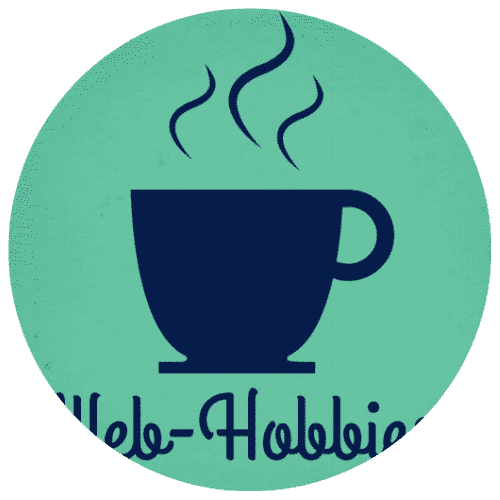
Self-help books written by psychologists by Ehssan – Did you know that the brain is the only organ that can’t feel pain? It also can’t form memories when intoxicated. The funniest thing I have ever read was that the span of human attention is shorter than that of a goldfish. I’m glad I can’t take responsibility for not paying attention during math lessons!
Since I’m interested in knowing as much as I can about the human brain and how our mind functions, I find myself reading a lot of books on the matter (see what I did there?). However, what I was more interested in was figuring out how I can improve my life while enjoying a good book? That’s when I came across these self-help books that have been written by psychologists! How cool is that?
These self-help books have been sitting on my shelf for over a year before I gave them a chance. I was disappointed in myself for wasting all of that time because these books deserve to be read the moment you know about them.
- Check out this: Finance Books to Read in Your 20s List
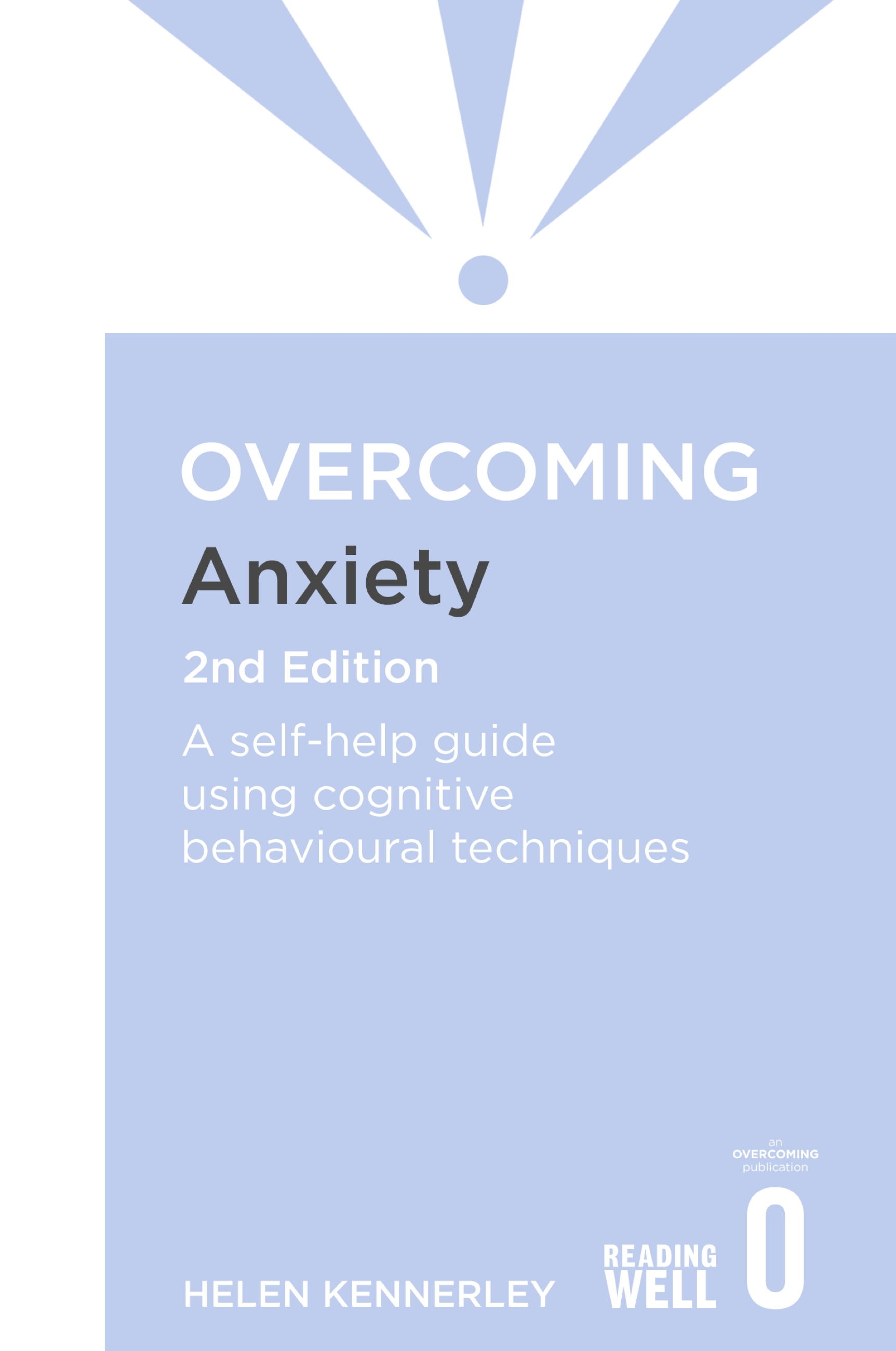
First in the Self-Help Books Written by Psychologists List:
“Overcoming Anxiety: A Self-Help Guide Using Cognitive Behavioral Techniques” by Helen Kennerley.
As a person who suffers from mild anxiety, I simply had to read this self-help book. Basically, It explains different types of anxiety along with fears and phobias. It also talks about panic attacks, OCD, and much more.
Dr. Kennerley started by explaining worry, anxiety, and fear. She went through intense details to help you understand those problems because how can you solve a problem if you don’t know exactly what it is. As they say, understanding a problem is half the solution.
Once she sets down the basics of those problems, she moves on to the practical part where she lays down a step-by-step program that had been developed over a decade of studies.
The program features coping strategies such as controlled breathing, thought management, time management, sleep management, and much more.
She used very direct language without beating around the bush, straight to the point. The book was only 150 pages and can be read over the weekend. I might read it again in the future as it was extremely interesting and helpful.
Favorite quote: “Worry, fear, and anxiety are crucial to our survival because they prepare us for coping with stress or danger”. This is similar to what my psychologist told me when I talked about having frequent panic attacks.
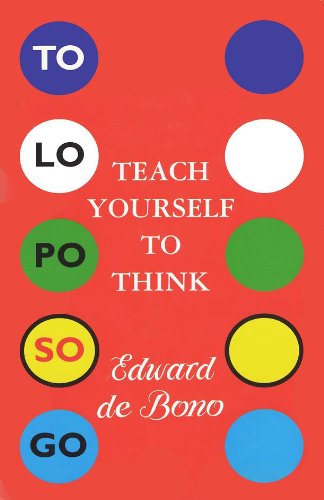
“Teach Yourself To Think” by Edward de Bono.
I consider Edward de Bono to be one of the best human beings to ever exist. I’ll never stop recommending his books. Not only he was a psychologist but also an inventor and a physician. In his books, he avoids using psychological jargon so that everyone can understand his work without the need for a degree in psychology.
If you are interested in developing your thinking skills, then this self-help book is for you. Dr. de Bono explains how you can achieve good helpful thinking following an easy-to-follow five-step process. He also explains every stage thoroughly.
These five stages are:
- TO: Where do I want to go?
- LO: The information stage.
- PO: What are my possibilities?
- SO: What is the outcome?
- GO: Putting the thinking to work.
The main goal of this marvelous book is to help you evaluate your goals, set a plan, and get down to business.
Favorite quote: “Feelings without the means to carry them out are not much good.” I remember when I read this line, I paused for a moment and let it sink in. That’s how much it got to me.
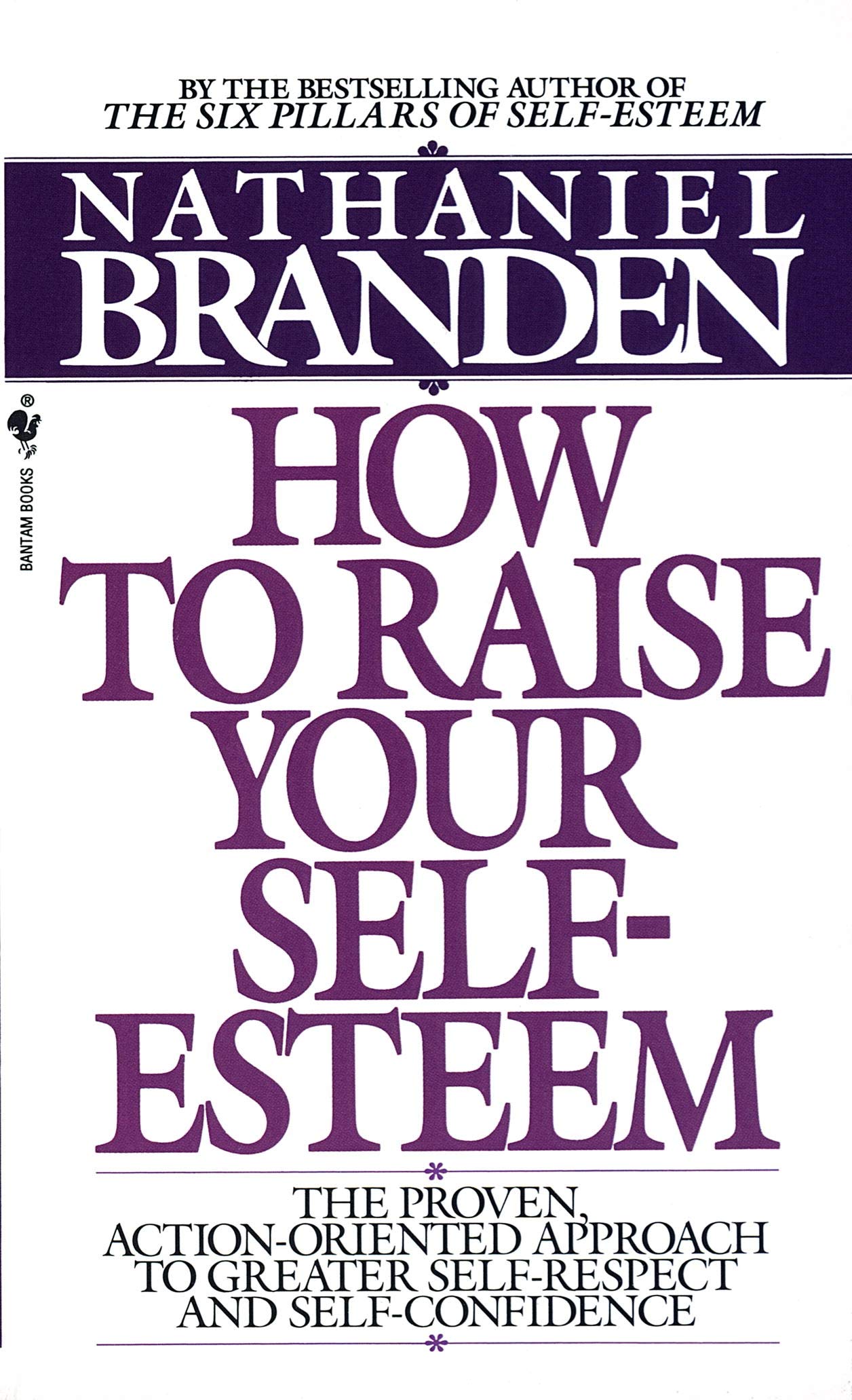
“How To Raise Your Self-Esteem” by Nathaniel Branden.
Known for his work in self-esteem psychology, Dr. Brandon talked about everything there is to know about self-esteem in this short self-help psy book. He summarized the work his done over three decades in under 200 pages.
He offered different exercises and day-to-day practices that can help raise your self-esteem.
The book starts by giving you an idea of what is self-esteem and why it matters. Then he moves on to the practical part where he introduces different exercises that are guaranteed to help.
The goal of his book is not only to help you raise your self-esteem but to also break free of all those negative self-destructive behaviors. He also teaches you how to destroy all of the internal blocks that keep you from succeeding in your personal and professional life.
He offers different pieces of advice to help you overcome depression, anxiety, and other mental disorders. Isn’t this everything one needs in a self-help book? It’s like having your personal psychologist in your pocket.
Favorite quote: “Of all the judgments we pass, none is as important as the one we pass on ourselves.” Wow.
- Read also this: List of Medical Courses – Top Basic Science Programs Ideas

“You Are Wrong I Am Right” by Edward De Bono
Self-Help Books Written by Psychologists – This is another piece of art by Dr. Bono. This time, he takes a different approach to human thinking habits. He explained how the human brain got used to thinking in a traditional way that isn’t helpful at all.
He believes that we -as human beings- fail to understand creativity just because it doesn’t conform to the logic we got used to.
Once you understand how you think, you can manage to change your thinking habits. When you break from that cycle of traditional thinking, a lot of possibilities will open up in your life.
This was the first self-help book I read of de Bono’s and it pushed me to read all of his remaining work.
Favorite quote: “ A person who knows all the answers, has an opinion on everything, has a certainty backed up by rational argument, has very little possibility of further progress. Such a person is unlikely to walk away from a discussion with anything more than a reaffirmation of how right he or she has been all along.”
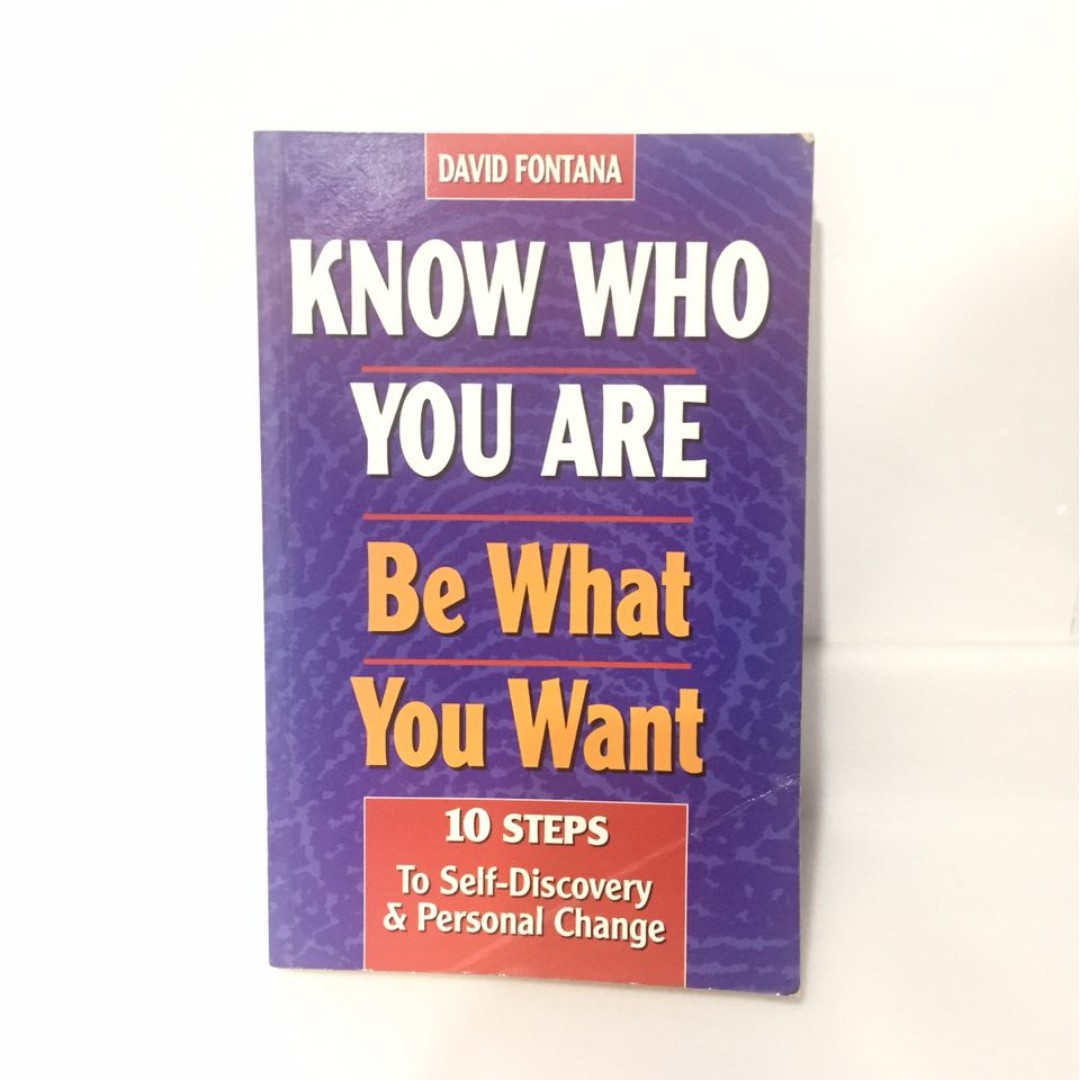
Last in the List of Self-Help Books Written by Psychologists:
“Know Who You Are, Be What You Want” by David Fontana.
Dr. Fontana was known for his work on spirituality along with psychology and religion. He wrote over 40 books on different subjects.
The goal of this self-help book is to help you discover your true self allowing personal growth and change.
He underlined 10 simple steps. 6 of them will allow you to know who you are while the remaining 4 will help you become what you want.
Like most self-help books, this one also features helpful exercises that are simple to follow.
In part one of the book, you’ll meet six steps that will hopefully bring you closer to knowing who you really are:
- Acknowledge the power your thoughts and emotions have over you.
- Find out what in your life has prompted you to have the thoughts that you do.
- Don’t blame yourself if you aren’t yet successfully in charge of your inner life.
- Recognize that the possession of psychological problems isn’t a sign of weakness.
- Acknowledge that you have the power to change.
- Find out where you are now.
While in part two, he helps you get to where you want to be:
- Find out how you got here.
- Find out where you want to go.
- Make the changes you want.
- Maintain your progress, and move on.
Favorite quote: “In order to make progress, one has first to let go.”
Final thought
Please note that in order for a self-help book to work, you need to be very attentive. It takes a big effort to take action to improve your life. When you admit that you want to change or need help, the rest comes easily.
Hope you liked these self-help books by written psychologists list.
Happy reading, and good luck!
